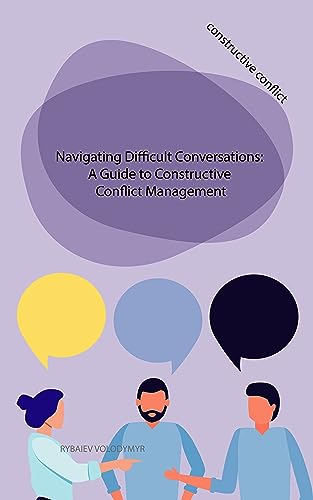Conflict is an inevitable part of life. Whether it’s a disagreement with a family member, a dispute with a coworker, or a falling out with a friend, conflict can leave us feeling uneasy and drained. But it doesn’t have to be that way. There are practical strategies and techniques we can employ to navigate difficult conversations and resolve conflicts in a healthy and productive manner.
Personally, I’ve always struggled with conflict. Growing up, my parents encouraged peace and harmony, which led me to believe that conflict was something to be avoided at all costs. As I entered adulthood, I quickly realized that avoiding conflict only exacerbated the problem and allowed resentment and frustration to fester. It wasn’t until I educated myself on conflict resolution techniques that I began to feel more confident in addressing conflicts head-on.
One of the first steps in resolving conflicts is developing effective communication skills. Communication is the foundation of any relationship, and often, conflicts arise due to misunderstandings or misinterpretations. Being able to express your thoughts and feelings in a clear and assertive manner is crucial in resolving conflicts.
Active listening is another essential component of effective communication. Active listening involves not only hearing what the other person is saying but also understanding their perspective and emotions. It means giving the other person your undivided attention, without interrupting or formulating your response while they are speaking. By truly listening, we show the other person that their thoughts and feelings are valued, fostering an environment where open and honest conversation can occur.
When engaging in difficult conversations, it’s important to approach the situation with empathy and understanding. Put yourself in the other person’s shoes and try to understand their viewpoint, even if you don’t agree with it. Acknowledge their emotions and validate their feelings, as this helps to create a sense of safety and openness. Remember, conflicts are often fueled by underlying emotions such as fear, anger, or disappointment. By addressing these emotions, we can uncover the root cause of the conflict and work towards a resolution.
Assertiveness is another key skill in conflict resolution. It’s about expressing your thoughts and needs while also respecting the thoughts and needs of others. Being assertive means being clear and direct without being aggressive or passive. It’s striking a balance between standing up for yourself and considering the needs of the other person. By being assertive, we set boundaries, share our perspectives, and work towards finding a mutually agreed-upon solution.
Another important aspect of conflict resolution is reframing the situation. Often, conflicts arise because we focus solely on our own perspective and needs, failing to see the bigger picture. By reframing the situation, we can widen our perspective and consider alternative solutions. This could involve looking for common ground, focusing on shared goals, or brainstorming creative ideas that benefit both parties. Reframing helps us to shift from a win-lose mindset to a win-win mindset, where both parties feel heard and valued.
However, conflict resolution isn’t just about finding a solution that appeases all parties. Sometimes, conflicts cannot be fully resolved, and compromise is necessary. Compromise involves finding a middle-ground or giving up something in order to reach a mutually acceptable agreement. It’s important to approach compromise with a willingness to let go of the need to be right and instead focus on finding a solution that everyone can live with. Remember, compromise doesn’t mean sacrificing your values or principles. It means finding common ground and moving forward in a way that respects everyone involved.
Lastly, it’s vital to practice self-care during the conflict resolution process. Conflicts can be emotionally and mentally draining, and taking care of yourself ensures that you have the energy and resilience to engage in difficult conversations. Taking breaks, engaging in activities that bring you joy, and seeking support from trusted friends or professionals can help you navigate conflict more effectively.
In conclusion, conflict resolution is a skill that can be learned and honed over time. By developing effective communication skills, actively listening, approaching conflicts with empathy and assertiveness, reframing the situation, being open to compromise, and taking care of yourself, you can navigate difficult conversations and resolve conflicts in a healthy and productive manner. Conflict doesn’t have to be avoided; it can be an opportunity for growth, understanding, and strengthening relationships.
